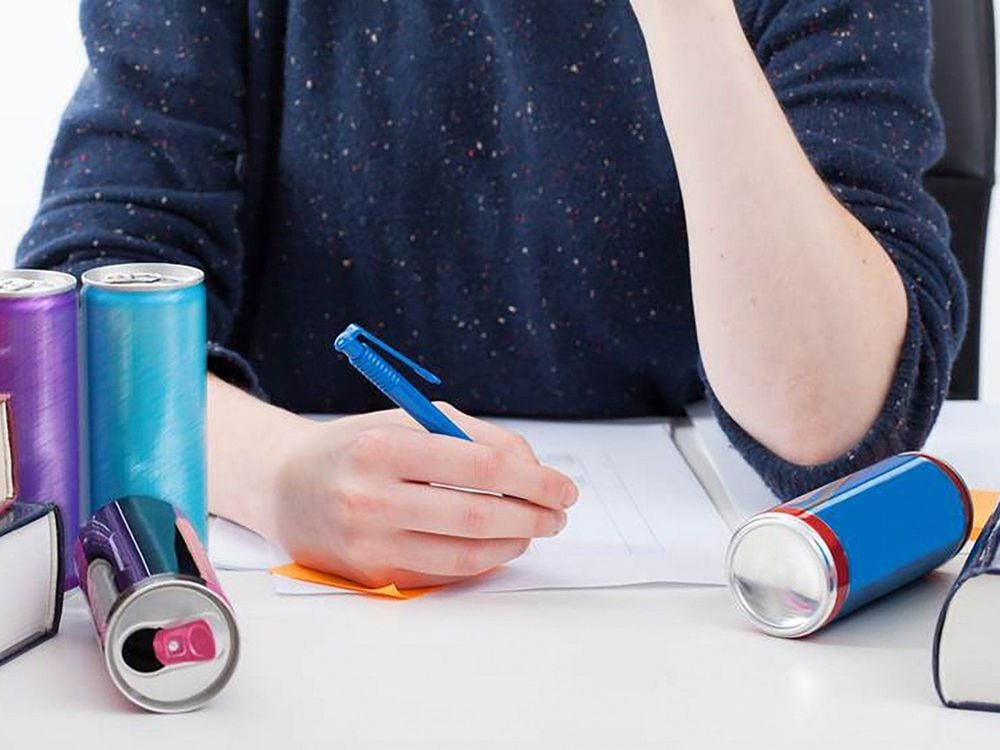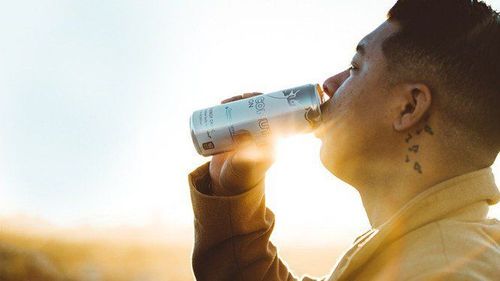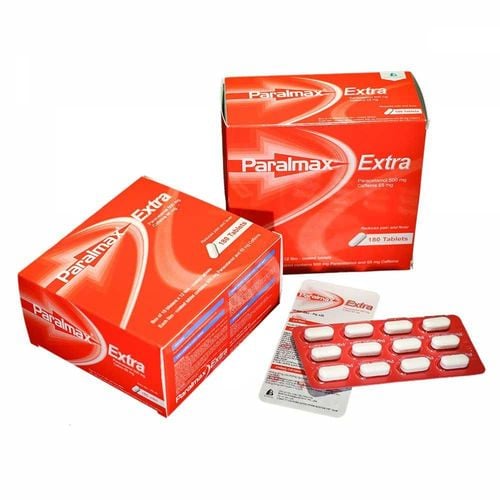This is an automatically translated article.
Energy drinks can help you wake up quickly. However, this type of energy drink can cause many health problems such as high blood sugar, cardiovascular effects, caffeine dependence, ... if taken too often.1. Composition of energy drinks
Energy drinks are drinks containing ingredients that help users increase energy levels and brain performance in a short time. Most energy drinks contain caffeine, a substance that can stimulate brain function, increase alertness and focus. However, caffeine content is not the same between energy drinks. In addition to caffeine, energy drinks also contain a number of other ingredients such as:Sugar: The main source of calories in energy drinks. However, there are a number of energy drink products that do not contain sugar, suitable for those following a low-carb diet; Amino Acids: The types of amino acids that can appear in energy drinks are taurine and L-carnitine. These 2 amino acids are naturally produced by the body and have many roles in biological processes; B vitamins: Play an important role in converting the food you eat into energy that your body can use; Herbal extracts: Energy drinks may contain ginseng extract, which has a positive effect on brain function, or guarana, a nut that helps replenish caffeine. SEE ALSO: Why should children not drink energy drinks?
2. The effect of energy drinks
Is it good to drink energy drinks? In fact, this type of water has a number of effects on the brain and performance. Specifically:Reduce fatigue: Many people drink energy drinks to be able to function normally even though they are in a state of sleep deprivation or fatigue; Improves brain function: Energy drinks help improve brain function and increase alertness. In addition, some studies have shown that energy drinks help improve memory, concentration, reaction time, and reduce mental fatigue.

Nước tăng lực có thể giúp bạn giảm mệt mỏi, tăng sự tỉnh táo
3. Negative effects of energy drinks
Energy drinks can cause many negative health effects. They are:3.1 Risk of Diabetes Energy drinks are often high in sugar. When too much sugar is consumed, the blood sugar level in the body will spike. Consuming energy drinks high in sugar can be bad for your health, especially for diabetics. In addition, people without diabetes should also limit their use of energy drinks because one study found that daily consumption of sugary drinks increased the risk of type 2 diabetes by 26%. Elevated blood sugar also increases levels of oxidative stress and inflammation, which can lead to many chronic diseases.
In particular, mixing energy drinks with alcohol also causes many health effects. The caffeine in energy drinks can worsen depression in drinkers. And people who drink energy drinks mixed with alcohol also tend to abuse alcohol more.
3.2 Risk of Cardiovascular Disease Energy drinks are a risk factor for cardiovascular problems. Some studies show that the use of energy drinks is associated with a number of heart problems, increased blood pressure, increased heart rate, decreased blood vessel function,...
Most experts agree that Cardiovascular diseases related to energy drinks are caused by users consuming too much caffeine. Many people experience serious heart problems after drinking more than 3 energy drinks at once or mixing energy drinks with alcohol. Therefore, users need to consider carefully before using energy drinks if they have a history of heart disease. As for healthy adults, without a history of heart disease, it is possible to drink energy drinks with a frequency and small amount.
MORE: Energy drink addiction: What you need to know
4. Recommendations on energy drink consumption for each age group
You can use energy drinks with the allowed dose, suitable for your age. Specifically:4.1 With children or adolescents The American Academy of Pediatrics recommends that children and adolescents should not drink energy drinks. The amount of caffeine in this drink can make children dependent or addicted to caffeine. In addition, the caffeine component in energy drinks can affect the heart and brain that is in the process of developing - maturing children.
Experts recommend that teenagers consume no more than 100mg of caffeine per day. For children, the amount of caffeine consumed should be less than 2.5mg/kg of body weight. Specifically, children under 12 years old, if they weigh 34kg, should only consume about 85mg of caffeine per day.
MORE: Do Energy Drinks Really Boost Your Energy?

Bạn nên giới hạn lượng nước tăng lực để tránh những ảnh hưởng tiêu cực của nó
Energy drinks are high in sugar - cause weight gain, have a lot of caffeine, cause anxiety, increase heart rate, insomnia,... Therefore, to increase energy for the body, you should get enough sleep, exercise Eat regularly and eat healthy instead of relying on energy drinks.
Please dial HOTLINE for more information or register for an appointment HERE. Download MyVinmec app to make appointments faster and to manage your bookings easily.
Reference source: mayoclinic.org












